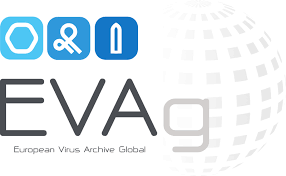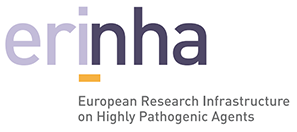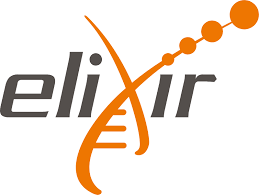
The EVORA Project is an initiative at the forefront of pandemic preparedness and response. In a world facing escalating risks from emerging pathogens, including viruses with epidemic and pandemic potential, EVORA stands as a beacon of collaboration and innovation.
Our mission is clear: to build a comprehensive and coordinated framework that fortifies the European Union’s capacity for concerted research and action in the face of infectious disease threats. EVORA aims to address the pressing needs associated with viral emergence, mitigating collateral effects such as fragmented research, regulatory obstacles, and governance issues.
EVORA aspires to offer a sustainable, operational alliance dedicated to providing customized, integrated resources and preclinical research services tailored to the study of viral pathogens with epidemic or pandemic potential.
Consortium



Project Coordination
EVORA is built upon three partner Research Infrastructures (ELIXIR, ERINHA, EVA), each consisting of numerous partner institutions. The project is coordinated by the EVA AISBL.
Activities
Each WP is meticulously designed to address specific aspects crucial for building resilience against viral threats. From establishing governance structures and enhancing synergies between research infrastructures to developing regulatory compliance frameworks and engaging with industry, EVORA’s WPs cover a spectrum of activities aimed at fortifying Europe’s capacity to combat infectious diseases. Explore further to discover how each WP contributes to our mission of safeguarding public health and securing our future against pandemics.
WP1&2: Project management & coordination
These work packages oversee the day-to-day management and coordination of the EVORA project. Tasks include ensuring compliance with EC regulations, coordinating activities among consortium members, managing financial administration, and developing a comprehensive Data Management Plan. In summary, WP1 & WP2 establish the framework for efficient project execution and coordination.
WP3&4: Dissemination, Communication, and Exploitation
These work packages aim to boost EVORA’s visibility and impact. Activities include crafting communication plans, creating materials, managing online presence, and engaging with stakeholders. Dissemination efforts span conferences, publications, webinars, and industry outreach. Results will be shared widely and stored in an online repository for accessibility.
WP5: Paving the way for EVORA’s sustainability
Focuses on securing its sustainability and long-term impact. Objectives include solidifying EVA’s position, forming a collaboration agreement, and engaging with decision-makers. Key tasks involve establishing legal entities, drafting collaboration agreements, and communicating with stakeholders to ensure ongoing support and awareness. Through strategic planning and engagement, EVORA aims to pave the way for sustained success in pandemic preparedness and response.
WP6: Coordination of EVORA’s operations and support to user
Plays a central role in EVORA by preparing coordinated support for users during inter-crisis and viral outbreak conditions. Tasks include establishing operational modes, developing administrative frameworks, and testing EVORA’s responsiveness. Key actions involve defining governance structures, designing access modalities, and drafting legal frameworks. Through simulation exercises and evaluation, WP6 aims to ensure EVORA’s readiness to effectively respond to viral outbreaks and provide seamless support to users.
WP7: Common language unifying EVORA online material and service sharing
Aims to establish a common language and facilitate access to data and resources for research in virology. Tasks include creating a project ontology for describing virological material and services, developing web applications based on this ontology, and providing guidelines for data management in the virology community. Additionally, it involves maintaining data providers and workflows for data deposition, as well as creating web applications to facilitate user access to EVORA’s resources.
WP8: Quality Management System
Focuses on homogenizing and improving the service offer through shared quality management guidelines, ensuring compliance with quality standards for biobanking and experiments in high containment facilities. It involves defining QMS standards applicable to virus collections, data management, and service provision, as well as measuring implementation through audits, workshops, and self-assessments to optimize and ensure compliance with EVORA’s quality guidelines.
WP9: Policy recommendations for pathogen preparedness: Nagoya Protocol, open data, DSI
Focuses on policy recommendations for pathogen preparedness, particularly addressing Nagoya Protocol compliance, transparency in digital viral resource management, and the intersection of the Convention on Biological Diversity (CBD) and WHO Pandemic Preparedness Accord. Tasks include engaging with authorities for Nagoya compliance, developing a roadmap for digital viral resources, and translating EVORA’s science for EU and international policymakers. The aim is to ensure compliance, transparency, and harmonization in managing viral resources and data for global health preparedness.
WP10: From Research Use Only to IVD-R: how to fill the gap through ISO certification
Focuses on bridging the gap between Research Use Only (RUO) laboratory-developed diagnostic assays and In Vitro Diagnostics Regulation (IVD-R) requirements. Tasks include qualifying lab-developed tests, reviewing regulations, and testing the performance of in vitro diagnostics (IVDs) during epidemics or pandemics. The goal is to prepare and validate protocols for diagnostics qualification, harmonize legal and regulatory components, and develop guidance for performance testing of IVDs in outbreak situations. Ultimately, the aim is to adapt diagnostics for epidemic and pandemic preparedness activities, ensuring compliance with regulatory standards.
WP11: Ethical & security considerations: Responsible use of animals for scientific purposes and handling of dual-use pathogens
Focuses on ethical and security considerations in scientific research. It aims to establish criteria for selecting user projects involving animal use and dual-use pathogens, ensuring compliance with legal and ethical standards. The initiative addresses the responsible use of animals, analyzing ethical review processes and proposing specific requirements for project selection. Additionally, it tackles the handling of dual-use pathogens, examining national and international regulations and seeking solutions for cross-border exchange challenges. The outcomes will inform EVORA’s shared procedures and contribute to future policy-making in these areas.